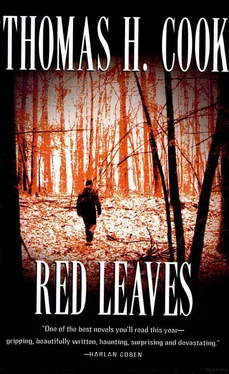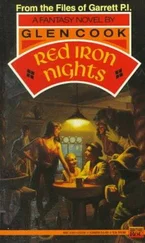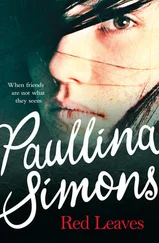She nodded. "Especially now."
"Now? What do you mean?"
"Now that we know why Leo asked Keith if he'd ever been to the water tower."
"What are you talking about?"
"They found Amy's pajamas there," Meredith said. She looked at me quizzically. "Haven't you been listening to the radio?"
I shook my head. "No, I guess I prefer to avoid things."
To my surprise she said, "Yes, you do. Keith's the same way."
"What do you mean?"
"You're not confrontational, Eric. You're passive. So is he."
"What does that mean, exactly?"
"It means what it says. That you don't confront things."
"Like what?"
"Jesus, Eric, where should I begin? Like Keith's grades, for one thing. I'm the one who makes demands. And the way he just slouches around the house. I'm the one who gets on his back, makes him take out the garbage, rake the leaves."
This was true. There was no denying it.
"And it's not that you don't think that he should do these things," Meredith added. "It's just that you don't want to confront him. That's the way you are, passive."
I shrugged. "Maybe so. I don't feel like arguing about it."
"My point exactly," Meredith said crisply.
Her tone struck me as unnecessarily harsh. "Well, what had you rather me do, argue with him all the time? Argue with you? Make a big deal out of everything?"
"But some things are big deals," Meredith shot back. "Like whether your son is fucked-up or not. That's a big deal."
"Fucked-up?"
"Yes."
"How is Keith fucked-up?"
Meredith wagged her head in frustration. "Jesus, Eric. Don't you see anything?"
"I see a teenage boy. What's so fucked-up about him?"
"He has no friends, for God's sake," Meredith said emphatically. "Lousy grades. No sense of direction. Have you ever seen a spark of interest in anything, the slightest sign of ambition?" She looked oddly defeated. "When he graduates from high school, he'll work for you in the shop, that's what he'll do. He'll deliver pictures the way he does now, except that he'll use a car instead of a bicycle. Eventually, he'll take over Neil's job. And when you die, he'll take the shop over completely." She made no effort to conceal her disappointment in such a course. "That will be his life, Eric, a little frame and photo shop."
"Like my life?" I asked. "The poor, pathetic bastard."
She saw that she had struck too deep. "I didn't mean it like that. You had nothing. Your father went bankrupt. You had to fend for yourself. But Keith has all the advantages. He could go to any school, follow any star."
I waved my hand and turned away. There was something in this I couldn't bear. "I'm going for a walk," I told her irritably.
"A walk?" Meredith asked. She looked at me quizzically. "At this time of day? Where?"
I never went for walks, but I knew I had to get away. It didn't matter where I went, only that I got out of the house, away from Meredith and the sense of failure and disappointment that wafted from her like an odor.
I turned and headed for the door. "The woods" was all I said.
In Frost's famous poem, they are lovely, dark, and deep, but the sun had not yet set on the woods that evening, and so every detail of the undergrowth was visible to me, save its function, which was to hide whatever lay beneath it.
There were no trails in the woods behind the house, no route through the bramble, so I made my way slowly, cautiously, pushing aside low-slung limbs and clinging vines.
I remember the things that came to mind as I walked: Amy's disappearance, Keith's interrogation, the trouble I feared might be ahead. But more than anything, when I think of that last lone walk, I consider not the bare facts I knew at the time, nor the problems I reasonably anticipated, but the darker currents I knew nothing of, nor could have imagined.
Now, so many years later, as I wait in the corner booth of a diner on a rainy autumn afternoon, I review the long course of my unknowing. Then the words return again, I'll be back before the news, and my body stiffens as if against a crushing blow, and I am once again in woods without a trail, and darkness is closing in, and there is no way to get back home.
PART II
Beyond the diner window, the streets are crowded. Families mostly, cameras hanging from their arms. You have served them by the thousands. They ask only the simplest questions. They pull out their little canisters of film and ask how much it will cost to have their pictures developed. You quote them a price and if they're satisfied with it, they ask when the pictures will be ready. You answer that question, too, and in most cases the deal is done. You walk to the developing machine, open the canister, take out the film, feed it into the machine, and wait. The rollers inside the machine turn, the chemicals disperse. The motor hums. The minutes pass. Then the pictures emerge, shiny, new. They fall into the tray like brightly colored leaves.
The years go by, old customers drop away and new ones appear. You wonder if one of these new ones will recognize you, remember what happened, and ask a different question. Then one Sunday morning the phone rings, and you realize that a past without a future is a corpse, and that for a long time you have been dead. You want to rise from the grave, wrench something good from all that darkness, and so you say yes and make the arrangements.
But what will you say, you ask yourself, what will you say when you confront it all again? You want to end with wisdom, but you must begin without rt because you had none when it began. You lived in a small town, lived a tidy little life. What you've learned since then, you've learned in increments, a treasure collected one coin at a time. And so you must chart the journey carefully, measure the pace, offer what you have gathered, and hope it will be accepted.
But first you must think it through again, return to that last moment, then double back to the days preceding it, how rt happened that in a few short days everything fell apart. Yes, you decide, that's the way to tell it.
The waitress has no suspicion. She has seen other men like you, alone on a Sunday morning, sitting in the back booth, with nothing but a mug of coffee.
And so you feel safe here. And why not? You could not bring them back to life, could not repair the damage, and so you decided to make the best of it. You thought of leaving Wesley, but you didn't. You stayed because you believed there was a reason to stay, and that, in the end, you would find that reason. But the years passed, and you had begun to believe that you would never find it. Then the phone rang, and suddenly the reason was clear. You realized that, if nothing else, you could give a few things back, draw them like dried bones from your own buried past.
And so you have come here, to this diner, in hope of doing that, offering the paltry gift of the few dark things you know.
NINE
S uspicion is an acid, that's one thing I know. Everything it touches it corrodes. It eats through the smooth, glistening surface of things and the mark it leaves is indelible. Late one night, I watched a rerun of one of the Alien movies. In one scene, the alien pukes up a liquid so corrosive it immediately eats through first one floor of the space station, then another and another. And I thought, it's like that, suspicion, it has nowhere to go but down through level after level of old trusts and long devotions. Its direction is always toward the bottom.
I knew that things had changed in my family, that Meredith had grown more volatile and Keith more defiant, but I wasn't aware of how much Amy Giordano's disappearance had affected other, seemingly neutral, people. She had been missing for three days by then, and there could be no doubt that everyone in Wesley now knew that Keith had been Amy's babysitter the night of her disappearance. Even so, I was totally unprepared for Mrs. Phelps's reaction.
Читать дальше












